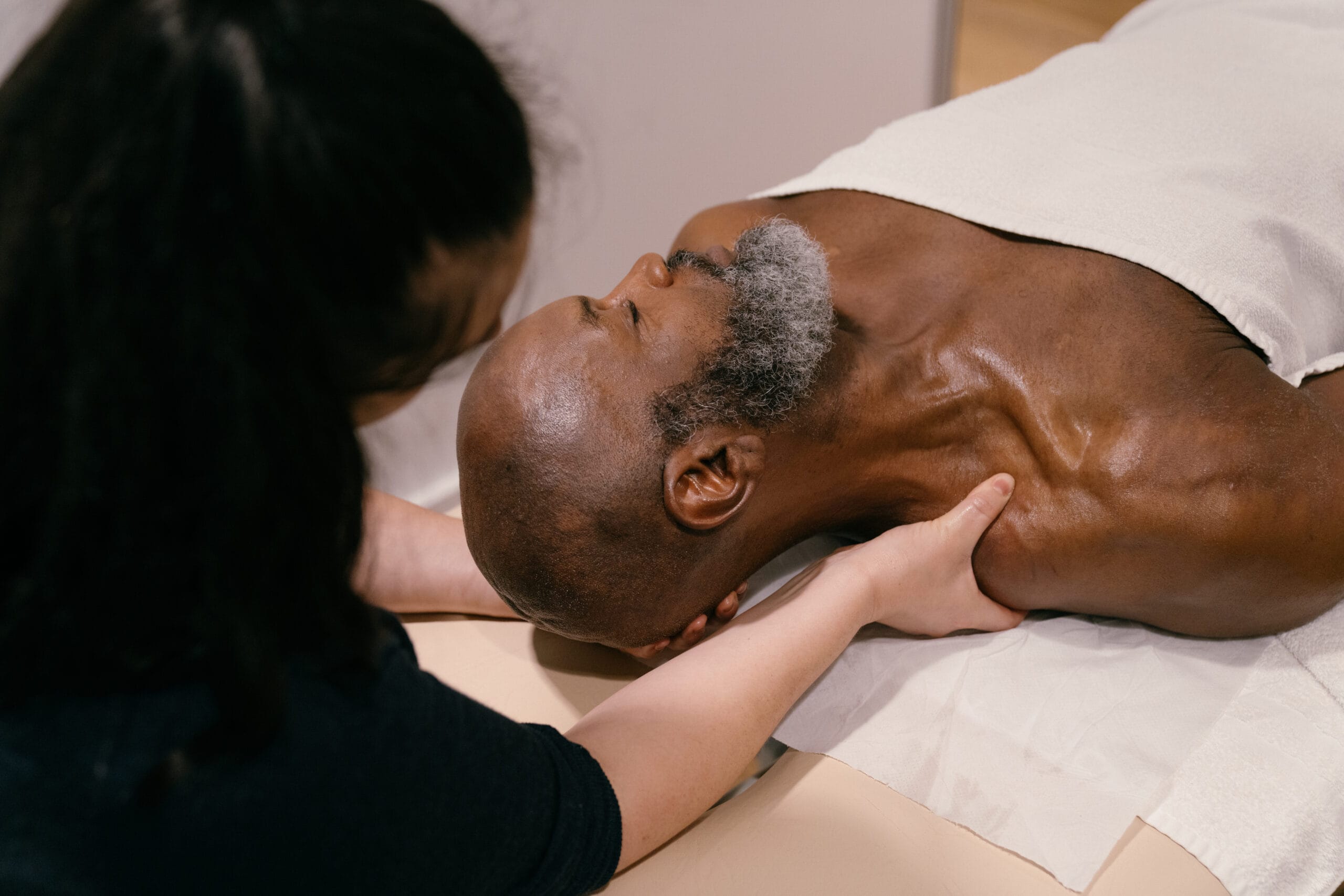What is Soft Tissue Therapy?

Pure Sports Medicine
- 25 July, 2019
- Strength & Conditioning
- Soft Tissue Therapy
- 4 min read
What is Soft Tissue Therapy?

The SMA, Association for Soft Tissue Therapists, one of the UK’s leading associations for the profession, describes Soft Tissue Therapy as the management, manipulation and rehabilitation of soft tissues of the body, including muscles, ligaments and tendons.
Also known as the musculoskeletal system, it has a strong influence on our bodies’ other systems, including the nervous system, immune system, lymphatic system and fascial system, to name a few.
It is first important to make clear that Soft Tissue Therapy is accessible to everyone. You do not have to be an athlete, involved in sport or even able-bodied to benefit.
Today, our work and lifestyle patterns put increased demands on our physical, mental and emotional wellbeing. This, in its simplest form, is putting a load on the body which we either have the capacity to manage or we don’t.
So what is Soft Tissue Therapy if it's not a massage?
Firstly, it involves an in depth discussion and movement assessment, a subjective and objective assessment, if you will. This will guide the most appropriate approach and treatment plan to address any pain or movement dysfunction.

The treatment itself may include massage if it is likely to have an optimal effect on your treatment goals.
As well as massage, your therapist may include other techniques, including soft tissue release (STR), Instrument Assisted Soft Tissue Mobilisation (IASTM), Muscle Energy Technique (MET) and Myofascial Release (MFR), which all come under the umbrella of Soft Tissue Therapy.
During and following your treatment, your Therapist will then re-assess any movements that are restricted or painful to determine the effectiveness of the treatment. They will also discuss plans for continued treatment and, if required, the involvement of the wider multi-disciplinary team.
When do I need Soft Tissue Therapy?
Soft Tissue Therapy will have a positive impact on your performance whether at work, at home or in sport. It is influential in supporting the management of any injuries, aches, pains and stresses that may be inhibiting this.
This may include:
- Occupational tightness, imbalances, stress or pain caused by long hours sitting or at a desk/computer.
- Promoting effective physical and mental recovery from exercise or work.
- Mitigating against risk of injury.
- As part of a rehabilitation programme to return to a daily active lifestyle or sport.
- Preparation for an important gym or sports-based training session.
- Periodisation of Soft Tissue Therapy to complement your training programme for a competition or work event.
- Post-operative scar work to improve soft tissue mobility and function.

What if I’m training hard
The load you are putting on yourself in terms of physical, mental and emotional load when working and training can be significant. Quite often, we go from 0 (sitting all day at work) to 100 (out for a run/cycle, etc) quite quickly without some form of preparation in between.
Implementing structured Soft Tissue Therapy as well as a series of routine exercises for mobility and preparation, prior to running or cycling, etc, can help reduce the risk of injury. Soft Tissue Therapy, alongside a comprehensive Strength and Conditioning programme, can help support this and advance your performance.
Therefore, Soft Tissue Therapy sessions will help influence an optimal effect on: preparation for performance, prevention of injury, restoring soft tissue health following injury and recovering from training, work and competition.
How often should you have Soft Tissue Therapy?
This depends very much on the individual; you need to take into account variables such as how often you train, how intensely you train, how long you sit, how you respond to load and treatment. A Soft Tissue Therapist will be able to advise more accurately after the first assessment and discuss an ideal management plan for you.

What is the benefit of regular Soft Tissue Therapy?
Regular Soft Tissue Therapy has much the same effect as anything else we do regularly. It provides a way to load the soft tissue structures and systems of the body to stimulate adaptation and change in a positive way.
As we lead busier, sometimes less active, and stressful lives, we take for granted the effect this has on us and become accepting of aches, pains and dysfunction.
Soft Tissue Therapy has been shown to be influential in helping manage this and reduce the impact this has on our physical and mental health. Improving mobility, body awareness, and sleep, reducing stress and anxiety, and mitigating the risk of injury are just a few benefits. We want our physical and mental states to spend more time in a rest, digest and restore, parasympathetic state rather than a fight, flight and freeze, sympathetic state.
Frequency and duration of treatment depend on the individual, but it can relate to how long you have had the issue, how your body responds and the environment that may be driving the problem. Regular Soft Tissue Therapy may vary from once or twice a week to monthly as per good protocol.
How to book Soft Tissue Therapy
To find out more about Soft Tissue Therapy, click here.
You are then able to contact our bookings team on 020 7788 7000 or via [email protected], or you can click the ‘book now’ button at the top right-hand corner of this page. Just select the location, date and time that suits you best.
Your first session will be 60 minutes and will include an initial assessment and the beginning of treatment, plus a history taking so your therapist can advise an informed treatment program. Subsequent treatments may either be 60 or 30 minutes.

Advice
Over the last 20+ years our experts have helped more than 100,000 patients, but we don’t stop there. We also like to share our knowledge and insight to help people lead healthier lives, and here you will find our extensive library of advice on a variety of topics to help you do the same.
OUR ADVICE HUBS See all Advice Hubs

